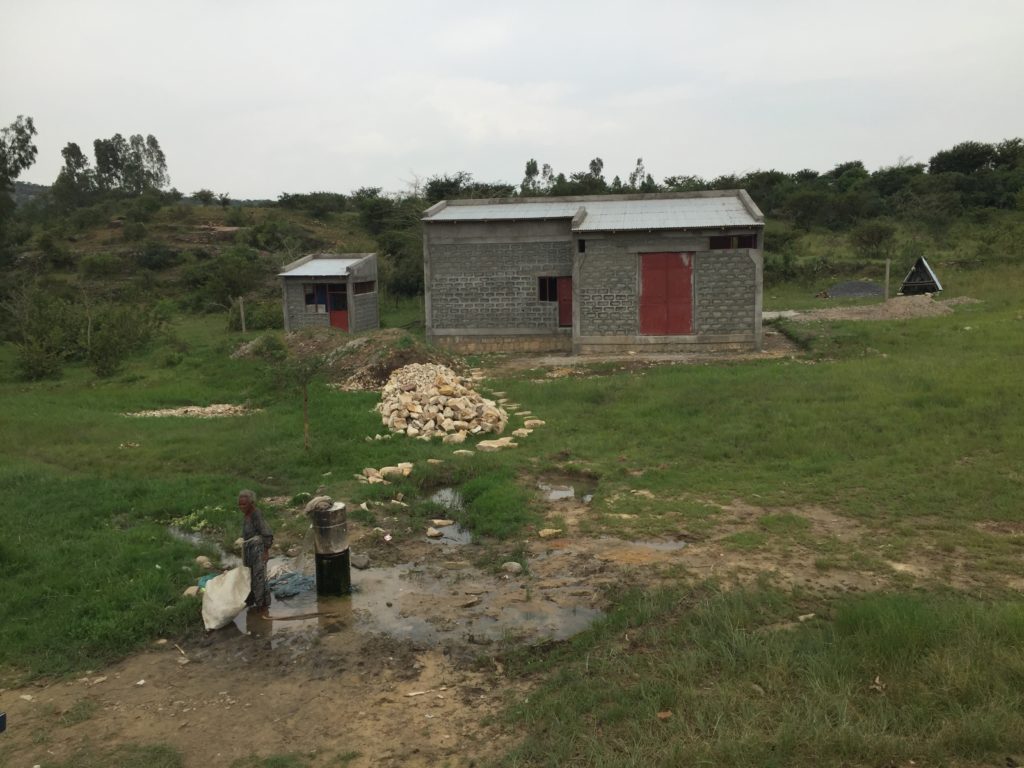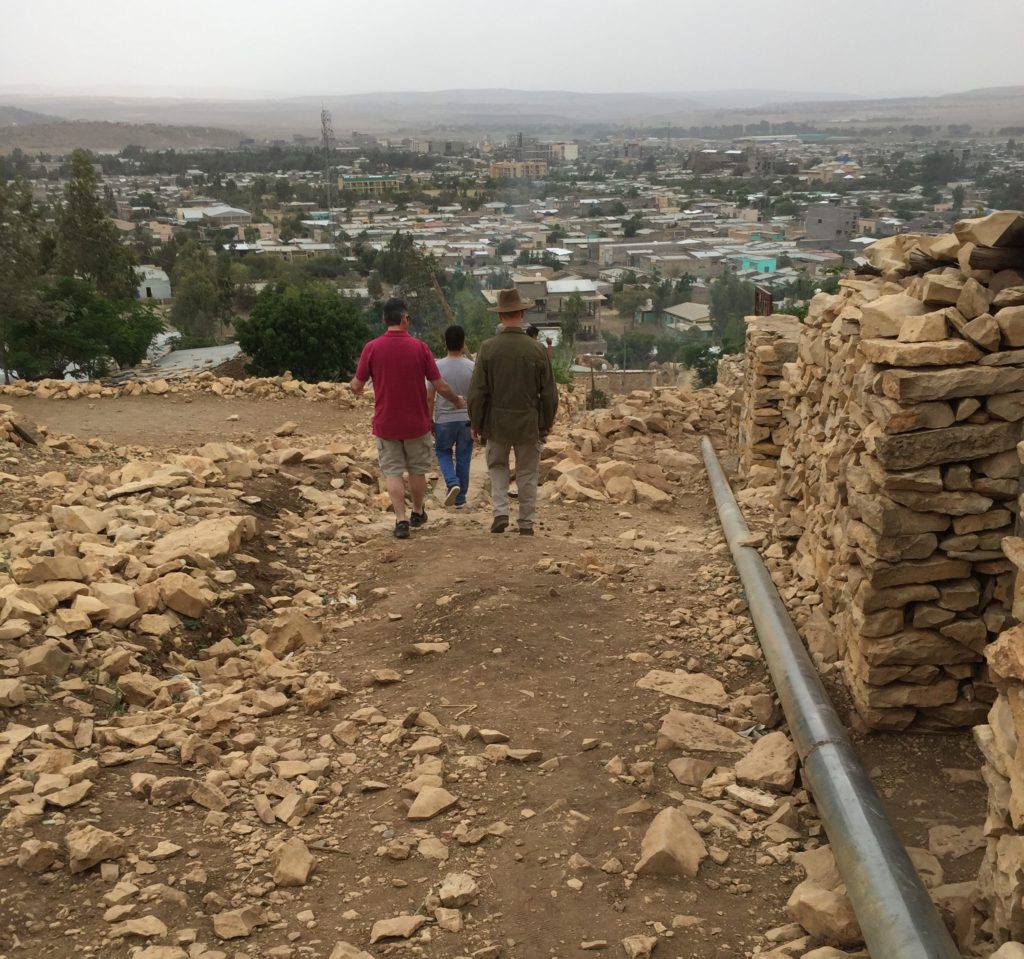Advancing climate resilient water services in Wukro, Ethiopia
Wukro’s water problem: of variable climate and increasing demand
Wukro is a small town in Ethiopia with a relatively common problem: water availability is seasonal and vulnerable to climatic events. The rainfall in this semi-arid environment falls mostly in just two months of the year. Water managers need to ensure stored water is available the rest of the year from unconfined aquifers accessed through hand-pumps in rural areas, and via a piped network in the urban area. These unconfined aquifers have been over abstracted, with water severely restricted in the dry season, especially in dry years, and piped water supplies only available for an hour a week. In the wet season, they are vulnerable to contamination.
The restrictions that occur on water availability limit people’s lives, health and livelihoods – water hasn’t been sufficient at times for hygiene, for livestock and for people to sustain their businesses. And the town water demand is growing rapidly with a population growth rate that has exceed expectations in the last ten-year plan, and significant construction developing hotels to bring tourism to area.
Building climate resilience for Wukro’s water
The end of May marked a shift for this town: an integrated WASH investment programme was inaugurated, funded by DFID as part of the One WASH programme and implemented by UNICEF, that provides improvements in water, sanitation and waste management. This included the construction of three new boreholes in an artesian aquifer located 20 kilometers from the town, which will double the available water supply and provide a seasonally reliable water source.
We visited in this week, and were able to join the Water Safety Plan training that was being provided by the Ministry of Water, Irrigation and Electricity and UNICEF for the utility’s Water Safety Plan team, comprising representatives of the utility management and operations teams, health workers and urban planners. We were able to lead a session on climate resilient Water Safety Plans as part of this training, drawing from WHO’s methodology.
Integrating water quality and water quantity through the Water Safety Plans methodology
Water Safety Plans are a risk-based approach to managing drinking water quality. They provide a proactive and comprehensive risk assessment and risk management approach that includes all stages of water supply from catchment to consumer. These types of risk-based approaches to water quality management are used in 118 countries, from small water supplies to large utility systems, providing improvements in water quality and health outcomes. Water Safety Plans tend to focus on quality alone, whereas to achieve health outcomes, such as reducing diarrhoea, it is also important to consider the quantity of water available. And while they are intended to help water managers plan and prioritise improvements for their water supplies from immediate to long-term actions, there is often limited consideration of climate change and its impact on water availability, destructive weather events, and the disease burden. The climate resilient Water Safety Plan methodology was developed to advance this water quality approach to explicitly include water quantity, and resilience of water services to extreme weather conditions and future changes.
In Wukro, the new artesian water source increases resilience, providing a more reliable source of water year round and through droughts to complement the existing system. Not all water supply systems have a resource like this available. Many will rely, as Wukro did previously, on unconfined groundwater systems that fluctuate seasonally and are vulnerable to contamination. The Ministry of Water, Irrigation and Electricity in Ethiopia is leading a national programme to improve climate resilience, a programme which is essential to deliver their intended development outcomes within the variable climate of the country, but there are many challenges to making it a reality.
Management of water resources is essential to achieve sustainability of water services. This is impeded when there is a lack of coordination such as between agencies with urban service delivery areas and rural catchment areas, which can be common in low resource settings. In these situations, the priority has often been to develop technical capacity for managing the engineered water supply infrastructure. Addressing climate resilience requires new skill sets and collaborations to consider the catchment, the management of the land and the other water users, as well as how all of these aspects are expected to change. Delivering climate resilient water supplies to the growing, developing populations in Ethiopia is a major coordination challenge to promote inter-sectoral cooperation.
At REACH we are advancing interdisciplinary collaborations between WASH practitioners, water resource managers and climate scientists to support decision-making based on knowledge of the complex water security trade-offs need for resilience. We continue to work with the government and UNICEF to develop capacity to increase the resilience of water supplies in Ethiopia, through managing for water availability, water quality and demand.
This blog was originally published on the REACH website.
REACH is a global research programme to improve water security for the poor by delivering world-class science that transforms policy and practice. The seven-year programme is led by the University of Oxford, funded by the UK Department of International Development, and brings together a consortium of global leaders, including the International Water Association (IWA), as a research into action partner, in water science, policy and practice.



